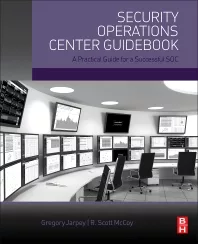Security News -- Cyber Security
Huawei Proposes Australian Cyber Security Test Center
Chinese telecom company Huawei is attempting to assuage fears in Australia, India, the United Kingdom and the U.S. that its telecom equipment presents a national security risk by proposing the creation of a cyber security test center in Australia, according to an article from InformationWeek.
Huawei Australia chairman John Lord says Wednesday that Huawei has been misunderstood, remarking that the company has done “a very poor job of communicating about ourselves,” as well as noting that the 25-year-old company had previously been a solely business-to-business company with “little need to ‘sell ourselves’ to the general public.”
He also says in the article that Huawei has “recognized that it must take great strides towards openness and transparency, and that is exactly what we are doing.”
The Huawei-proposed national cyber security evaluation center in Australia would test telecom equipment for risks and vulnerabilities. Huawei has done something similar in the UK, where it provided product source code to British security agencies in order to supply BT with telecom gear, InformationWeek reports.
A White House-ordered review of Huawei (according to a preliminary copy obtained by Reuters) suggests that Huawei equipment presents a risk due to the presence of vulnerabilities that could be exploited by hackers, InformationWeek reports. However, the report found no evidence that the company spies for China – which tends to be a major concern.
Read More: Congressional Panel Concludes China Telecom Giants 'Cannot Be Trusted'
In March, Australia refused to allow Huawei to bid on its national broadband network because of fears that the Chinese company’s close ties with the Chinese government presented a potential threat to national security. Earlier in October, a report issued by a U.S. congressional committee warned that Huawei and ZTE, another Chinese telecom company, should not be trusted because they failed to answer questions about their ties to Chinese authorities to the satisfaction of committee members, InformationWeek notes.
However, Lord dismissed reports that suggest Huawei is at war with Australian national security agencies, saying that the company is committed to working with the Australian government to ensure secure national critical infrastructure, the article says.
As Lord sees it, InformationWeek reports, security frameworks based on greater transparency are inevitable. "As information and communications technology plays an increasingly significant function in critical infrastructure projects around the world, all nations will need to take a step in this direction at some point," Lord said in prepared remarks. "In the age of globalization, no country has the ability to sustain its own isolated [information and communications technology] industry, indeed no country should. All countries must also develop security assurance frameworks to effectively analyze technology products which are globally sourced," he says in the article.
Looking for a reprint of this article?
From high-res PDFs to custom plaques, order your copy today!






